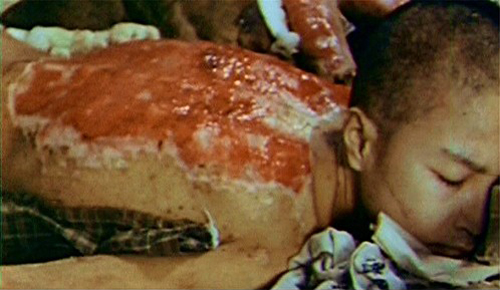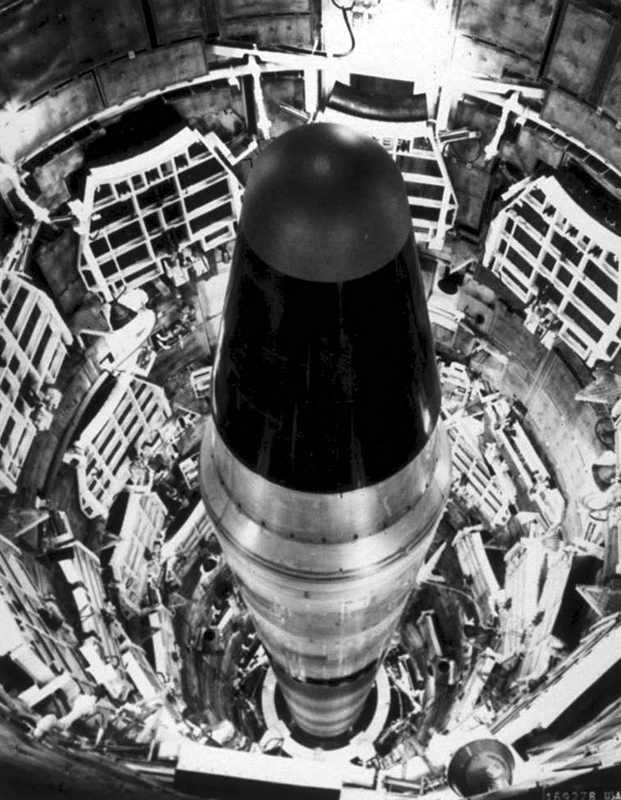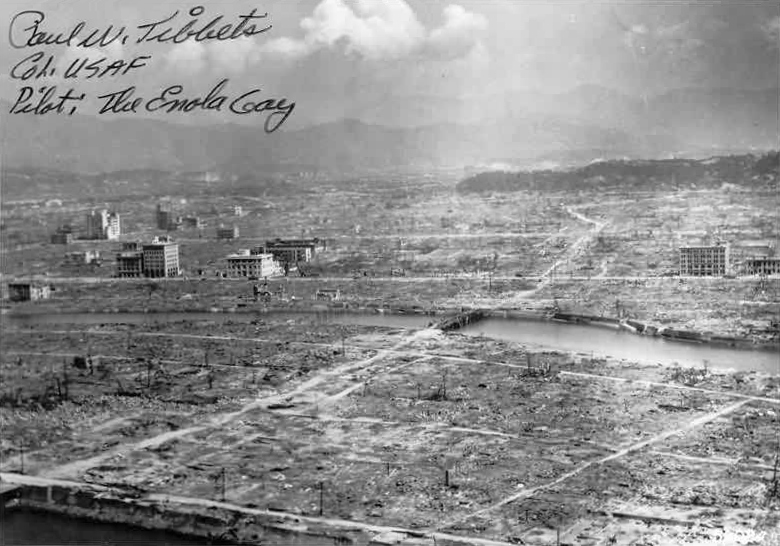|
2017 Nobel Peace Prize
The 2017 Nobel Peace Prize was awarded to the International Campaign to Abolish Nuclear Weapons (ICAN) (founded in 2007) "for its work to draw attention to the catastrophic humanitarian consequences of any use of nuclear weapons and for its ground-breaking efforts to achieve a treaty-based prohibition on such weapons," according to the Norwegian Nobel Committee announcement on October 6, 2017. The award announcement acknowledged the fact that "the world's nine nuclear-armed powers and their allies" neither signed nor supported the treaty-based prohibition known as the Treaty on the Prohibition of Nuclear Weapons or nuclear ban treaty, yet in an interview Committee Chair Berit Reiss-Andersen told reporters that the award was intended to give "encouragement to all players in the field" to disarm. The award was hailed by civil society as well as governmental and intergovernmental representatives who support the nuclear ban treaty, but drew criticism from those opposed. At the Nobel Pe ... [...More Info...] [...Related Items...] OR: [Wikipedia] [Google] [Baidu] |
Nobel Prize Medal
Nobel often refers to: *Nobel Prize, awarded annually since 1901, from the bequest of Swedish inventor Alfred Nobel Nobel may also refer to: Companies * AkzoNobel, the result of the merger between Akzo and Nobel Industries in 1994 * Branobel, or The Petroleum Production Company Nobel Brothers, Limited, an oil industry cofounded by Ludvig and Robert Nobel * Dynamit Nobel, a German chemical and weapons company founded in 1865 by Alfred Nobel * Nobel Biocare, a bio-tech company, formerly a subsidiary of Nobel Industries * Nobel Enterprises, a UK chemicals company founded by Alfred Nobel * NobelTel, a telecommunications company founded in 1998 by Thomas Knobel Geography * Nobel (crater), a crater on the far side of the Moon. * Nobel, Ontario, a village located in Ontario, Canada. * 6032 Nobel, a main-belt asteroid Other uses *The Nobel family, a prominent Swedish and Russian family * Nobel (automobile) a licence-built version of the German Fuldamobil, manufactured in the UK and C ... [...More Info...] [...Related Items...] OR: [Wikipedia] [Google] [Baidu] |
Beatrice Fihn
Beatrice Fihn (born November 1982) is a Swedish lawyer. She has been executive director of the International Campaign to Abolish Nuclear Weapons (ICAN) since 2014. On 6 October 2017, the Norwegian Nobel Committee announced that the 2017 Nobel Peace Prize honor was given to International Campaign to Abolish Nuclear Weapons (ICAN) "for its efforts to raise awareness of the catastrophic humanitarian consequences of nuclear weapons use and for pioneering efforts to achieve a treaty-based ban on nuclear weapons." During the Nobel Peace Prize award ceremony at Oslo City Hall held on 10 December 2017, Fihn jointly received medals and diplomas on behalf of ICAN alongside Setsuko Thurlow, who survived Hiroshima in 1945. Biography Fihn was born on 1982 in Gothenburg, Sweden. She studied at the University of Stockholm, earning a bachelor's degree in international relations in 2008. In 2009, she participated in an internship at the Women's International League for Peace and Freedom (WILPF ... [...More Info...] [...Related Items...] OR: [Wikipedia] [Google] [Baidu] |
Hibakusha
''Hibakusha'' ( or ; ja, 被爆者 or ; "person affected by a bomb" or "person affected by exposure o radioactivity) is a word of Japanese origin generally designating the people affected by the atomic bombings of Hiroshima and Nagasaki at the end of World War II. Definition The word ''hibakusha'' is Japanese, originally written in kanji. While the term Hibakusha (''hi'' "affected" + ''baku'' "bomb" + ''sha'' "person") has been used before in Japanese to designate any victim of bombs, its worldwide democratisation led to a definition concerning the survivors of the atomic bombs dropped in Japan by the United States Army Air Forces on the 6 and 9 August 1945. Anti-nuclear movements and associations, among others of ''hibakusha'', spread the term to designate any direct victim of nuclear disaster, including the ones of the nuclear plant in Fukushima. They therefore prefer the writing (substituting ''baku'' with the homophonous "exposition") or "person affected by the e ... [...More Info...] [...Related Items...] OR: [Wikipedia] [Google] [Baidu] |
Atomic Bombings Of Hiroshima And Nagasaki
The United States detonated two atomic bombs over the Japanese cities of Hiroshima and Nagasaki on 6 and 9 August 1945, respectively. The two bombings killed between 129,000 and 226,000 people, most of whom were civilians, and remain the only use of nuclear weapons in armed conflict so far. In the final year of World War II, the Allies of World War II, Allies prepared for a costly Operation Downfall, invasion of the Japanese mainland. This undertaking was preceded by a Air raids on Japan, conventional and firebombing campaign that devastated 64 Japanese cities. The European theatre of World War II, war in the European theatre concluded when Germany German Instrument of Surrender, surrendered on 8 May 1945, and the Allies turned their full attention to the Pacific War. By July 1945, the Allies' Manhattan Project had produced two types of atomic bombs: "Fat Man", a plutonium implosion-type nuclear weapon; and "Little Boy", an enriched uranium gun-type fission weapon. The 509th ... [...More Info...] [...Related Items...] OR: [Wikipedia] [Google] [Baidu] |
Atomic Age
The Atomic Age, also known as the Atomic Era, is the period of history following the detonation of the first nuclear weapon, The Gadget at the '' Trinity'' test in New Mexico, on July 16, 1945, during World War II. Although nuclear chain reactions had been hypothesized in 1933 and the first artificial self-sustaining nuclear chain reaction (Chicago Pile-1) had taken place in December 1942, the Trinity test and the ensuing bombings of Hiroshima and Nagasaki that ended World War II represented the first large-scale use of nuclear technology and ushered in profound changes in sociopolitical thinking and the course of technological development. While atomic power was promoted for a time as the epitome of progress and modernity, entering into the nuclear power era also entailed frightful implications of nuclear warfare, the Cold War, mutual assured destruction, nuclear proliferation, the risk of nuclear disaster (potentially as extreme as anthropogenic global nuclear winter) ... [...More Info...] [...Related Items...] OR: [Wikipedia] [Google] [Baidu] |
Cold War
The Cold War is a term commonly used to refer to a period of Geopolitics, geopolitical tension between the United States and the Soviet Union and their respective allies, the Western Bloc and the Eastern Bloc. The term ''Cold war (term), cold war'' is used because there was no large-scale fighting directly between the two superpowers, but they each supported major regional conflicts known as proxy wars. The conflict was based around the ideological and geopolitical struggle for global influence by these two superpowers, following their temporary Allies of World War II, alliance and victory against Nazi Germany and Empire of Japan, Imperial Japan in 1945. Aside from the Nuclear arms race, nuclear arsenal development and conventional military deployment, the struggle for dominance was expressed via indirect means such as psychological warfare, propaganda campaigns, Cold War espionage, espionage, far-reaching Economic sanctions, embargoes, rivalry at sports events, and technolog ... [...More Info...] [...Related Items...] OR: [Wikipedia] [Google] [Baidu] |
Michael Klare
Michael T. Klare is a Five Colleges professor of Peace and World Security Studies, whose department is located at Hampshire College (Amherst, Massachusetts, USA), defense correspondent of ''The Nation'' magazine and author of ''Resource Wars'' and ''Blood and Oil: The Dangers and Consequences of America's Growing Petroleum Dependency'' (Metropolitan). His 2019 book is, ''All Hell Breaking Loose: the Pentagon's Perspective on Climate Change'' (Metropolitan). Klare also teaches at Amherst College, Smith College, Mount Holyoke College and the University of Massachusetts Amherst. Klare serves on the board of directors of the Arms Control Association. He is a regular contributor to many publications including ''The Nation'', '' TomDispatch'' and '' Mother Jones'', and is a frequent columnist for Foreign Policy In Focus. He also was the narrator of the movie ''Blood and Oil'', which was produced by the Media Education Foundation. He lives in Northampton, Massachusetts. Klare is a g ... [...More Info...] [...Related Items...] OR: [Wikipedia] [Google] [Baidu] |
Nuclear Warfare
Nuclear warfare, also known as atomic warfare, is a theoretical military conflict or prepared political strategy that deploys nuclear weaponry. Nuclear weapons are weapons of mass destruction; in contrast to conventional warfare, nuclear warfare can produce destruction in a much shorter time and can have a long-lasting radiological result. A major nuclear exchange would likely have long-term effects, primarily from the fallout released, and could also lead to secondary effects, such as " nuclear winter", nuclear famine and societal collapse. A global thermonuclear war with Cold War-era stockpiles, or even with the current smaller stockpiles, may lead to various scenarios including the extinction of the human race. To date, the only use of nuclear weapons in armed conflict occurred in 1945 with the American atomic bombings of Hiroshima and Nagasaki. On August 6, 1945, a uranium gun-type device (code name "Little Boy") was detonated over the Japanese city of Hir ... [...More Info...] [...Related Items...] OR: [Wikipedia] [Google] [Baidu] |
Doomsday Clock
The Doomsday Clock is a symbol that represents the likelihood of a man-made global catastrophe, in the opinion of the members of the ''Bulletin of the Atomic Scientists''. Maintained since 1947, the clock is a metaphor for threats to humanity from unchecked scientific and technological advances. A hypothetical global catastrophe is represented by midnight on the clock, with the ''Bulletin''s opinion on how close the world is to one represented by a certain number of minutes or seconds to midnight, assessed in January of each year. The main factors influencing the clock are nuclear risk and climate change. The ''Bulletin''s Science and Security Board monitors new developments in the life sciences and technology that could inflict irrevocable harm to humanity. The clock's original setting in 1947 was seven minutes to midnight. It has since been set backward eight times and forward 16 times for a total of 24, the farthest from midnight being 17 minutes in 1991, and the nearest bei ... [...More Info...] [...Related Items...] OR: [Wikipedia] [Google] [Baidu] |
Joint Comprehensive Plan Of Action
The Joint Comprehensive Plan of Action (JCPOA; fa, برنامه جامع اقدام مشترک , barnāmeye jāme'e eqdāme moshtarak (, ''BARJAM'')), commonly known as the Iran nuclear deal or Iran deal, is an agreement on the Iranian nuclear program reached in Vienna on 14 July 2015, between Iran and the P5+1 (the five permanent members of the United Nations Security Council—China, France, Russia, United Kingdom, United States—plus Germany) together with the European Union. Formal negotiations toward JCPOA began with the adoption of the Joint Plan of Action, an interim agreement signed between Iran and the P5+1 countries in November 2013. Iran and the P5+1 countries engaged in negotiations for the next 20 months and, in April 2015, agreed on an " Iran nuclear deal framework" for the final agreement. In July 2015, Iran and the P5+1 confirmed agreement on the plan, along with the "Roadmap Agreement" between Iran and the IAEA. After the Trump administration twice certifi ... [...More Info...] [...Related Items...] OR: [Wikipedia] [Google] [Baidu] |
2017 North Korea Crisis
Seventeen or 17 may refer to: * 17 (number), the natural number following 16 and preceding 18 * one of the years 17 BC, AD 17, 1917, 2017 Literature Magazines * ''Seventeen'' (American magazine), an American magazine * ''Seventeen'' (Japanese magazine), a Japanese magazine Novels * ''Seventeen'' (Tarkington novel), a 1916 novel by Booth Tarkington *''Seventeen'' (''Sebuntiin''), a 1961 novel by Kenzaburō Ōe * ''Seventeen'' (Serafin novel), a 2004 novel by Shan Serafin Stage and screen Film * ''Seventeen'' (1916 film), an American silent comedy film *''Number Seventeen'', a 1932 film directed by Alfred Hitchcock * ''Seventeen'' (1940 film), an American comedy film *'' Eric Soya's '17''' (Danish: ''Sytten''), a 1965 Danish comedy film * ''Seventeen'' (1985 film), a documentary film * ''17 Again'' (film), a 2009 film whose working title was ''17'' * ''Seventeen'' (2019 film), a Spanish drama film Television * ''Seventeen'' (TV drama), a 1994 UK dramatic short starring Christi ... [...More Info...] [...Related Items...] OR: [Wikipedia] [Google] [Baidu] |
Nuclear Weapons Debate
The nuclear weapons debate refers to the controversies surrounding the threat, use and stockpiling of nuclear weapons. Even before the first nuclear weapons had been developed, scientists involved with the Manhattan Project were divided over the use of the weapon. The only time nuclear weapons have been used in warfare was during the final stages of World War II when USAAF B-29 Superfortress bombers dropped atomic bombs on the Japanese cities of Hiroshima and Nagasaki in early August 1945. The role of the bombings in Japan's surrender and the U.S.'s ethical justification for them have been the subject of scholarly and popular debate for decades. Nuclear disarmament refers both to the act of reducing or eliminating nuclear weapons and to the end state of a nuclear-free world. Proponents of disarmament typically condemn a priori the threat or use of nuclear weapons as immoral and argue that only total disarmament can eliminate the possibility of nuclear war. Critics of nuclear d ... [...More Info...] [...Related Items...] OR: [Wikipedia] [Google] [Baidu] |




.png)


